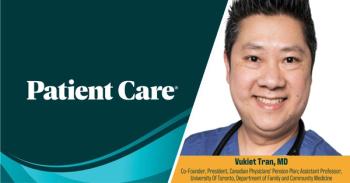
Aspirin May Have Role in Asthma Prevention
BOSTON -- Aspirin may reduce the risk of new-onset asthma in adult males, according to a retrospective analysis of a longitudinal study of thousands of physicians.
BOSTON, Jan. 15 -- Aspirin may reduce the risk of new-onset asthma in adult males, according to a retrospective analysis of a longitudinal study of thousands of physicians.
A post hoc analysis of data from the Physicians' Health Study, which investigated the role of aspirin in preventing first heart attacks, revealed that men who took 325 mg of aspirin every other day had a 22% reduction in risk of new onset asthma, found Tobias Kurth, M.D., Sc.D., of Brigham and Women's Hospital here, and colleagues.
Moreover, the possible protective effect of aspirin was not modified by baseline risk factors including smoking, body mass index, or age, but the benefit appeared to be greater among younger men, the researchers reported in the January issue of the American Journal of Respiratory and Critical Care Medicine.
Although aspirin can trigger bronchospasm in an estimated 4% to 11% of asthma patients with aspirin-sensitive asthma, at least one prospective cohort study of women found that frequent aspirin use was associated with less new onset asthma.
The authors theorized that aspirin might reduce the risk of asthma via Cox-dependent and Cox-independent pathways. The investigators pointed out that nothing in the study implied that aspirin improves symptoms in patients with asthma.
The Physicians' Health Study randomized 22,071 healthy male physicians, ages 40 to 84 to aspirin or placebo.
The aspirin component of the study was terminated after 4.9 years because of the statistically significant 44% reduction in first myocardial infarction in the aspirin arm.
Asthma was not a primary endpoint of the study but physicians could include information about asthma diagnosis in medical history questionnaires collected at baseline, six months, and annually thereafter.
At baseline, 22,040 physicians were asthma-free. During follow-up there were 113 new asthma diagnoses in the aspirin arm and 144 in the placebo arm (HR: 0.78, 95% CI, 0.61-1.00; P=0.045).
Although intriguing, Dr. Kurth said the findings were hypothesis generating and required confirmation by a large randomized trial.
He noted that strengths of the trial included its randomized, placebo-controlled design, and its size. Additionally, he said that physicians were likely to accurately report new asthma diagnoses.
But, even though the physicians were told to use non-steroidal anti-inflammatory medications for pain, Dr. Kurth said it was possible that "random assignment to low-dose aspirin decreased use of acetaminophen, which in turn might have contributed to fewer new diagnoses of asthma."
Dr. Barr and co-author Meir J. Stampfer Dr.P.H., M.D., reported no conflicts. Other authors, including Dr. Kurth, disclosed financial arrangements with Bayer AG, McNeil Consumer & Specialty Pharmaceutical, Wyeth Consumer Healthcare, Organon, Dow Corning Corporation, Natural Source Vitamin E Association, Department of Biomedical Science and Center of Excellence, Florida Atlantic University, Actelion, Agatstron Research Institute, Amgen, AstraZeneca, Biovail, Bristol-Myers Squibb, Chattem, Delaco, U.S. Food and Drug Administration, GlaxoSmith-Kline, Keryx, Merck, Novartis, Pfizer, Reliant, TAP Pharmaceutical Products, United BioSource Corporation, UpToDate, Sun Trust Bank, Pliva, BASF, DMS Pharmaceuticals, Edelman Publishing, and Nutraquest.
Newsletter
Enhance your clinical practice with the Patient Care newsletter, offering the latest evidence-based guidelines, diagnostic insights, and treatment strategies for primary care physicians.

































































































































